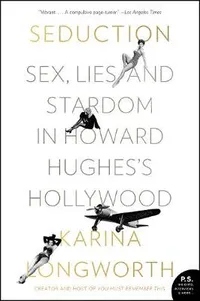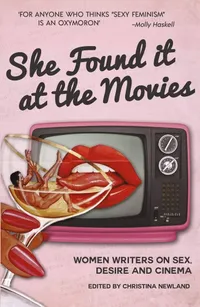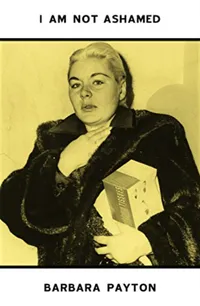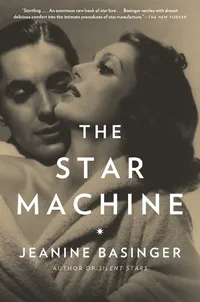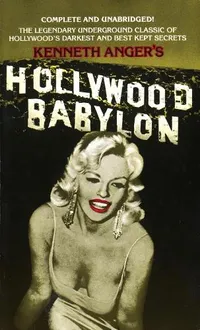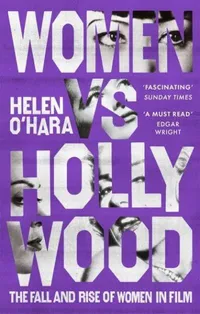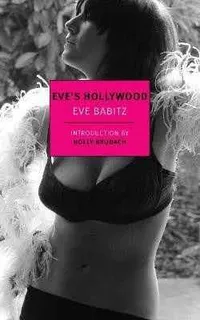Seven scandalous books about women in Hollywood
Think fallen starlets, controversial tell-alls, and sordid scandals from Hollywood’s Golden Age.

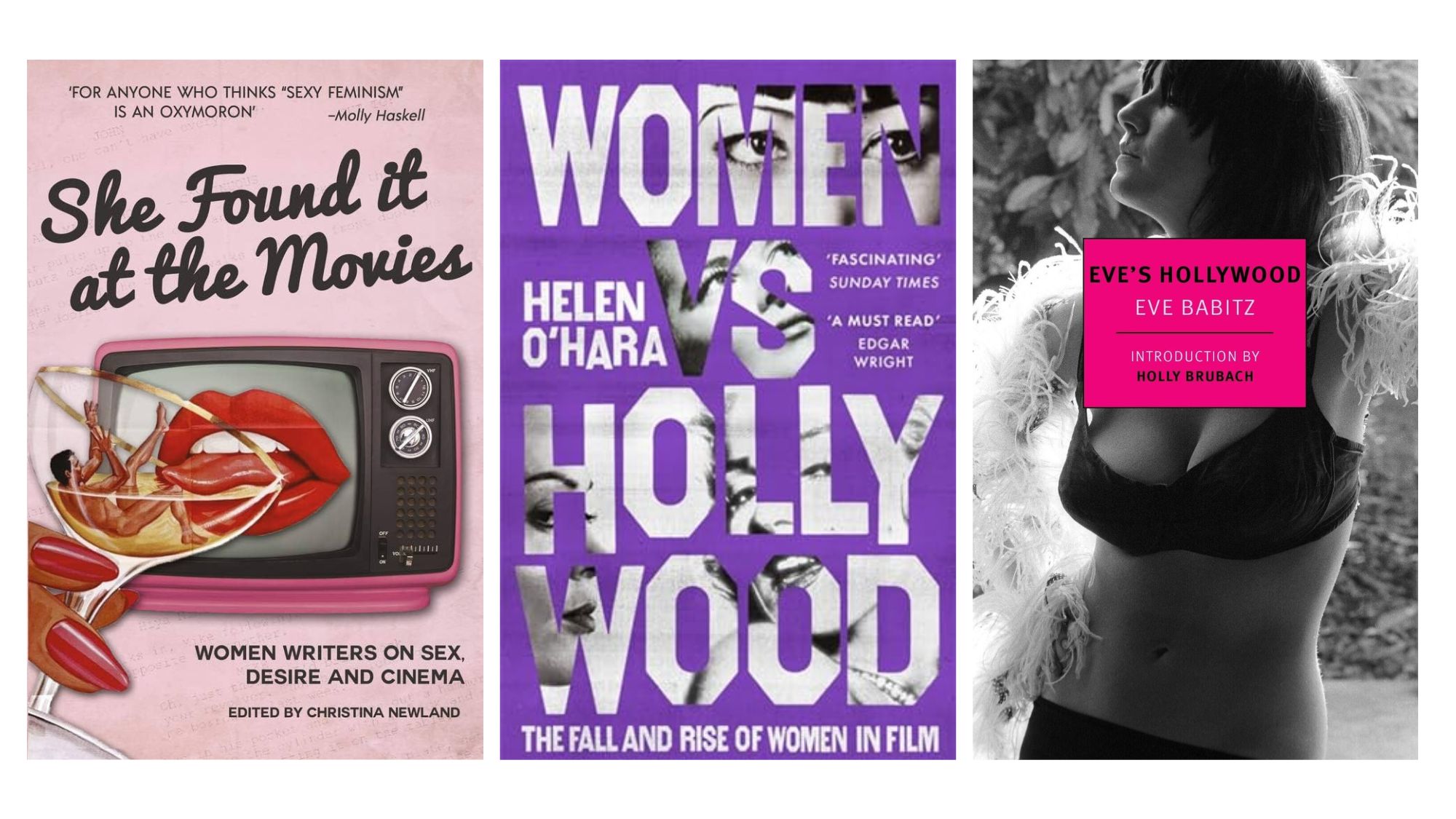
Celebrity news, beauty, fashion advice, and fascinating features, delivered straight to your inbox!
You are now subscribed
Your newsletter sign-up was successful
The Oscars are here, and ahead of Hollywood’s most prized night, I thought I’d lower the tone by diving into the murky depths of La La Land’s underbelly.
Hollywood isn’t always known for its glittering treatment of women, and these books reveal some dark truths alongside plenty of frothy gossip, salacious secrets, and hilarious (and sometimes sinister) tidbits.
So, settle in as we cruise through Laurel Canyon to Beverly Hills by way of Beachwood Canyon, the home of the world’s most famous sign. Incidentally, our story starts here, in 1932, when actress Peg Entwistle plunged to her death in search of eternal fame in the afterlife after failing to make it in the land of the living. They don’t call it the City of Angels for nothing, you know.
To quote the doyenne of all-things Hollywood history, Karina Longworth, join me, won’t you…
Seduction: Sex, Lies, and Stardom in Howard Hughes's Hollywood by Karina Longworth | £12.99 at Waterstones
No reading list would be complete without an entry by Hollywood historian Karina Longworth (honourable mention goes to Hollywood Frame by Frame).
Seduction: Sex, Lies, and Stardom in Howard Hughes’s Hollywood serves as a stark reminder that abuse and exploitation by moguls didn’t start with Harvey Weinstein. Longworth tells the tale of dozens of actresses who sought stardom and found themselves trapped in a system that profited from them but rarely valued them.
Longworth gives colour and context to women that Howard Hughes saw as (at best) one-dimensional trophies, (at worst) chattel. Whether profiling silver screen legends like Jean Harlow, Katharine Hepburn, and Ava Gardner or lesser-known actresses like Jean Peters who found themselves adrift in Hughes’ oppressive orbit, Longworth’s extensive research and vivid detail grants these women full lives beyond the Texan oil tycoon’s grasp. Leonardo DiCaprio and an ageing Warren Beatty have depicted Hughes on screen, but this book reveals him beyond his glitzy pioneering persona and infamous germ phobias. It bursts at the seams with glorious details like Jane Russell’s bra in The Outlaw.
Further listening: You Must Remember This: The Many Loves of Howard Hughes
She Found It at the Movies: Women Writers on Sex, Desire and Cinema by Christina Newland | £9.50 at Amazon
Ok, I’ll admit it, I bought this book because of the cover, but as if to prove that sometimes you really can judge a book by its cover, this juicy read is as delicious as the artwork suggests.
She Found it at the Movies reads as a love letter to cinema. Organised into sections, such as Innocence and Experience and The Female Gaze, the book comprises essays from guest writers from The Guardian, Vulture, and more, all centred around the topic of women’s relationships with the movies. Some read like salacious teenage diary entries (I say that with the utmost respect to this humble medium), while others are more like cultural deep dives (very Laura Mulvey, indeed).
Celebrated feminist film critic Molly Haskell, of the powerfully titled From Reverence to Rape: The Treatment of Women in the Movies, put it best when she described the book as “For anyone who thinks sexy feminism is an oxymoron.”
Further reading: Jayne Mansfield and the American fifties
I Am Not Ashamed by Barbara Payton | £12.99 at Blackwell's
“Barbara Payton was the post-war Julia Fox: uncannily gorgeous, a talented actress, and caught up in one of the biggest tabloid love triangles of the day,” says Sarah Waldron of my favourite literary Substack Book Duel. Again, an honourable mention goes to Molly Young’s legendary Read Like The Wind.
“Unlike Fox, Payton didn’t reinvent herself as an It Girl. It all went horribly wrong, as this sometimes funny, sometimes sad memoir testifies,” adds Waldron. This book is so much more than a scorched woman revealing all. It’s raw, unapologetic, and sometimes downright discomforting to read - as all memoirs should be, in my humble opinion. Read this if you enjoy sardonic humour, Cat Marnell’s How to Murder Your Life (or Julia Fox’s Down the Drain, for that matter) and florid lines like this one:
“If I hadn’t worn a low-cut gown at a dance so that a gawky Air Force Captain noticed me, I’d never have gotten to Hollywood. So, brethren, hark. Next time you go to a dance be careful how you dress. You just might end up a Hollywood star.”
Further listening: You Must Remember This: Barbara Payton, Dead Blondes Episode 10
The Star Machine by Jeanine Basinger | £16 at WHSmith
This slot was originally reserved for something from the legend that is Pauline Kael, but to my shame, I still haven't gotten around to reading any of her twenty-something books.
Instead, I dedicate spot four to another celebrated film scholar, Jeanine Basinger, who The New York Observer once described as "the Rosalind Russell of film historians," I assume in reference to her sassy quips and withering put-downs.
The Star Machine is dense but also delicious, straddling the line between academic text and Confidential magazine. It examines the Golden Age of Hollywood—which some list as 1915-1963, while others put it at 1929-1945—and, in particular, the conveyor belt of talent the "star system" churned out.
Further reading: Silent Stars, Valley of the Dolls
Hollywood Babylon by Kenneth Anger | £8.99 at Waterstones
Steamy tales, salacious gossip, and thinly-veiled grievances - this book has it all. The antithesis of those academic tomes you’ll find up top, Kenneth Anger’s iconic (and believe me when I say I use that description sparingly) is stuffed with outright (and outrageous) lies.
New York Times critic Peter Andrews described it as a “306-page box of poisoned bonbons,” so you know it’s a riot to read. As the ever-fastidious Karina Longworth explains in her 19-part special on the subject (Fake News: Fact Checking Hollywood Babylon), most of the sordid scandals are the stuff of fiction, but as that other famous gossip monger Truman Capote used to quip (the quote actually belongs to Mark Twain); “never let the truth get in the way of a good story.” This once-banned book has good stories in spades, no wonder it’s become more famous than the lives it lays (or should I say lies) bare.
Further viewing: Babylon
Women vs Hollywood: The Fall and Rise of Women in Film by Helen O'Hara | £9.99 at London Review Bookshop
While many explorations into the forgotten women of film history focus on maligned movie stars and silenced starlets, Women vs Hollywood by Empire’s ‘geek queen’ Helen O’Hara takes a 360-degree approach, delving into the lives of early pioneers from behind the camera, like Dorothy Arzner and Mabel Normand, as well as those in front of it.
Examining the changing roles of women in Hollywood, from Mary Pickford to Margot Robbie, it offers a comprehensive overview of a century-old industry. From the Silent Era to New Wave, New Hollywood and today’s Blockbuster Era, O’Hara covers it all and pays homage to the women behind the scenes and on the screen.
Further reading: The Female Gaze
Eve’s Hollywood by Eve Babitz | £10.65 by Amazon
What to say about Los Angeles It Girl Eve Babitz? Earl McGrath, former president of Rolling Stone Records, had this to say, “In every young man’s life there is an Eve Babitz. It’s usually Eve Babitz.”
Ahh, if only I’d had an Eve Babitz in my life. Sadly, I never have, so I’ve had to make do with Eve’s too-few books. Chief among them is the sublime Eve’s Hollywood. Sure, this is LA, as seen through the singular gaze of a self-described “daughter of the wasteland” who often lacks self-awareness, but Eve’s Hollywood is a place I wish I could visit. Her high school haunts (she literally went to Hollywood High and hung out in cafes immortalised for launching the careers of icons) have already been so mythologised, but Eve manages to capture them anew. You can’t help but gobble down her Rainier Ale-drenched musings and enviable anecdotes— like getting driven home by an older guy who turned out to be Johnny Stompanato, gangster and Lana Turner’s lover (until her daughter killed him)—like one of Eve’s beloved taquitos.
I’ll leave the last word to Eve; “I did not become famous but I got near enough to smell the stench of success. It smelt like burnt cloth and rancid gardenias, and I realized that the truly awful thing about success is that it’s held up all those years as the thing that would make everything all right. And the only thing that makes things even slightly bearable is a friend who knows what you’re talking about.”
Further reading: Hollywood’s Eve, Slow Days Fast Company
Celebrity news, beauty, fashion advice, and fascinating features, delivered straight to your inbox!

Mischa Anouk Smith is the News and Features Editor of Marie Claire UK.
From personal essays to purpose-driven stories, reported studies, and interviews with celebrities like Rosie Huntington-Whiteley and designers including Dries Van Noten, Mischa has been featured in publications such as Refinery29, Stylist and Dazed. Her work explores what it means to be a woman today and sits at the intersection of culture and style. In the spirit of eclecticism, she has also written about NFTs, mental health and the rise of AI bands.
